ARTICHOKE
ARTICHOKE
Artichoke is a large, bulb-shaped vegetable with tightly packed green leaves and a tender heart at its center. Known for its earthy, slightly nutty flavor, it’s often steamed, grilled, or stuffed, and is prized in Mediterranean cuisine.
Artichokes are rich in dietary fiber, which supports digestion and cholesterol management. They are high in antioxidants, especially cynarin and silymarin, which help detoxify the liver and support overall metabolic health. With significant levels of vitamin C, folate, and magnesium, they also boost immunity and heart health.
ARTICHOKE BABY
Baby artichokes are smaller, more tender versions of the full-sized variety. Since they haven’t fully developed a choke, they are almost entirely edible and cook more quickly—ideal for roasting, sautéing, or marinating.
These tender artichokes offer all the same health benefits as their larger counterparts, including high fiber, liver-supporting antioxidants, and vitamin C. Their smaller size makes them convenient and easy to include in healthy, low-calorie meals.
ARTICHOKE JERUSALEM (Jerusalem Artichoke / Sunchoke)
Despite its name, Jerusalem artichoke is not a true artichoke. It’s a knobby, root vegetable from the sunflower family, with a sweet, nutty flavor similar to water chestnut or jicama. It’s commonly roasted, mashed, or eaten raw.
Jerusalem artichokes are an excellent source of inulin, a prebiotic fiber that supports gut health and aids in blood sugar control. They’re also rich in iron, potassium, and thiamine (vitamin B1), which promote energy metabolism, muscle function, and nervous system health. Naturally gluten-free and low in starch, they’re a great option for those managing diabetes or looking for digestive support.

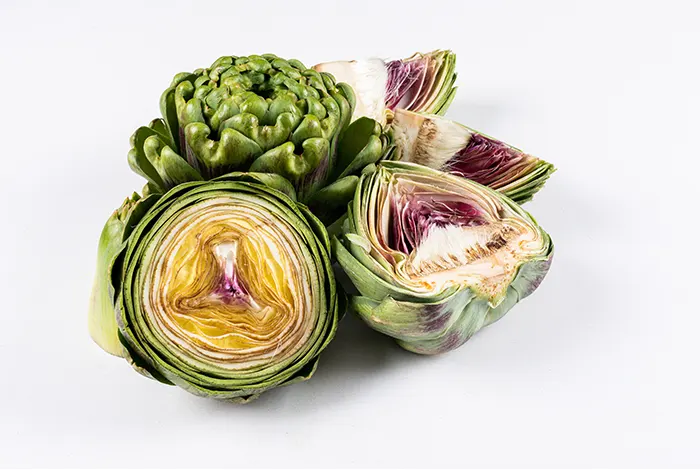
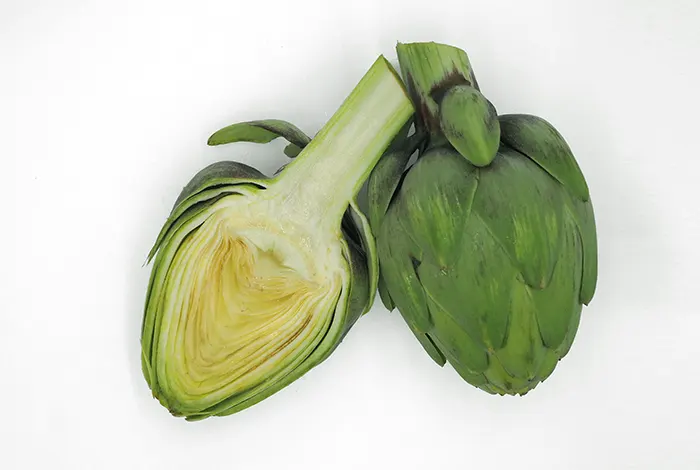
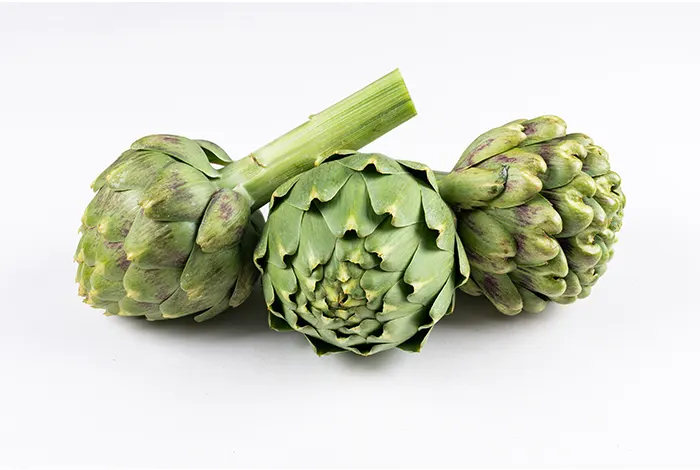
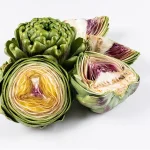
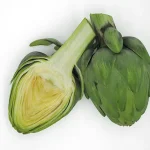
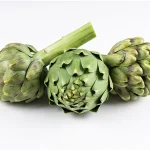
Reviews
There are no reviews yet.